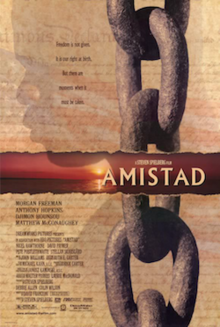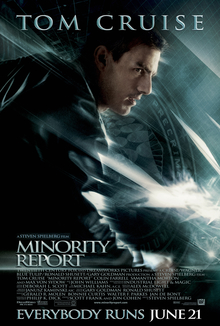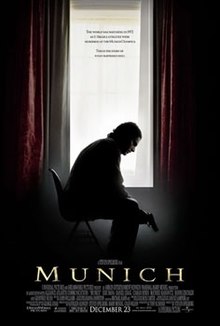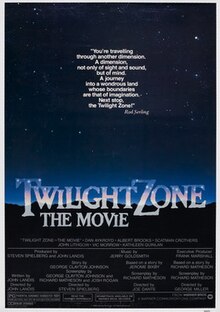
This is a brutal film to watch, especially the parts regarding the scenes on the slave boat. The movie lacks the unique combination of violence and beauty that Schindler's List does. It also lacks the full sense of immersion into that era as Spielberg does later with Lincoln. It also builds too much of the movie on a young Matthew McConahay, who had not yet cut his teeth deeply enough to become the actor he is today.
But Amistad gets a lot of things right. Djimon Honsou's performance is amazing. He brings such incredible intensity to a part of a man so desperate for freedom and yet he is barely understood. Spielberg does such an amazing job of getting us into his mind and how he sees the world of 1800's America as so completely alien. You can see all this when he explodes in desperation and shouts "Give us, us free!"
But the movie has a special place in my heart for how Spielberg portrays Christians. I don't just mean that he portrays them with respect, which he does. The way he visually expresses their faith is better than in most Christian movies. At first the believers who come and visit the prisoners appear like crazy aliens. But then one of the Africans gets a Bible. Even though he cannot read, he begins to discern the story from the pictures. This is one of the finest examples I've seen that explains the necessity of art. From the pictures, he is able to understand much of the story of Christ and so he comes to peace. The judge in the case is also a Catholic, which was not a popular thing in America at this time. Spielberg shows the effect of faith has on him with incredible visual strength, brief though it is.
As good as these moments are, it very much feels like Amistad is Spielberg's rough draft of Lincoln.
19. Minority Report

This is a good film that is often forgotten. It has a strong sci-fi story base that explores different elements of ethics, fate, and free will. This also has one of Tom Cruise's most underrated performances. He is a broken man obsessed with punishing others in his pursuit to punish others. The production values are through the roof and everything feels like the natural evolution of our own technology.
The most memorable scene for me is the one where his son is abducted. It is so terrifying because it is Cruise's character is not horribly neglectful. He turns he looks away only for a moment and then his son is gone forever. It is a powerful moment that Spielberg captures in a way that makes us feel like that could be any of us. One small mistake could have lifelong, tragic consequences.
The reason that the movie does not have the kind of staying power as his other films is that this is his first movie after AI. In the early 2000's, Spielberg began to lose the ability to edit himself. He started to become indulgent in his visual storytelling. You can hear him in interviews about Jaws and Raiders of the Lost Ark about how he wants to put as much of what he filmed into the final cut, even when making the movie slimmer would be better. I get the feeling that making AI was a liberating experience for him in that he was making a sprawling Kubrick movie instead of a tight-narrative blockbuster.
Minority Report could be a great deal better if he tightened up the story and did not let the movie linger to long. As a result, this movie doesn't make the impact that it really should.
18. Munich

This is one of his most indulgent movies. It also has an unusually relativistic philosophy underneath it. You could easily cut an entire hour out of Munich and it would make it much better.
Eric Bana has his best performance of his career as Avner, the leader of a secret death squad tasked with killing the planners of the Munich massacre. This movie has some of Spielberg's most intense visual moments. The scene of the first bombing they plan is harrowing and told almost completely without words. The Mossad agents plan on killing an ambassador, but they want to wait until his family is away so that they do not get hit by the bomb. Everything goes according to plan until they miss his little daughter returning home to get something. It was a scene that will have you absolutely on the edge and remind you of Spielberg's mastery.
Tony Kushner's script is too long, unable to maintain this same level of tension throughout. It also appears to make a moral equivalency between terrorists and those who hunt them. He wants to explore the effect of vengeance, even righteous vengeance, on the soul. And there is nothing wrong with humanizing those who do evil things, since human beings are odd and complicated creatures. But the overall effect is that the vengeful response is its own kind of terrorism. Spielberg has such little confidence in his ability to handle this topic that he actual does a forward to the DVD where he tells the audience that the movie is not meant to be an attack on the state of Israel.
I will say, one of the most heartbreaking moments of the movie is one that Spielberg films with wonderful restraint. Weightlifter Yossef Romano makes it to a window and is able to escape from the terrorists who will kidnap and kill the Israeli Olympic Team. But once at the window, as he breathes free air, he turns back and looks in the direction of his teammates. In that moment, so brief, he has to make a choice that will determine everything for him. And Spielberg places you perfectly in that moment of agony.
17. Duel

Some should say that this shouldn't be on this list because it was originally aired as a TV movie. But, it did have a brief theatrical run, so it qualifies.
Spielberg said that every few years, he rewatches Duel to remind himself how to make a movie. And there is good reason for that.
Duel is the story of a man driving through the desert who is targeted by a mysterious oil truck. This truck menaces him throughout the movie. As this was before cell phones, the large expanse of the desert means that he is far out from civilization as this mechanical behemoth stalks him like a monster.
The movie's biggest fail is when it does an internal voice-over that is way too on the nose. Remove that and Duel is better than any TV movie should be.
Spielberg is able to take something like a truck and turn it into a danger of mythic proportions. It hulks over the hero with a constant sense of menace, where death is just around the corner. It never shies away from its B-Movie premise, but it doesn't appear embarrassed that it is a low-budget thriller film. Spielberg took what should be a simply schlock film and made it better than most theatrical films of the day.
The movie is rough around the edges, but the bones are so solid that you will not care.
16. The Twilight Zone

This is an odd one since it consists of 4 short films, one of which Spielberg directed.
But that short film is so simple, magical, and insightful, that it ranks this high on the list.
The story is called "Kick the Can," and it takes place in a nursing home. The residents are all sad because of all of the negatives that come with age: loneliness, sickness, poverty. One of the residents, Mr. Bloom, tells them that should sneak out at night and play the childhood game "Kick the Can" in the moonlight. They do and while they play they magically turn into children and are given the chance to relive youth.
That in and of itself is a magical idea. Spielberg films it with such visual wonder that you cannot help but feel jubilant for this second chance. And yet, upon reflection, they realize that this will mean ignoring all that they have done in their adult life. It would mean a goodbye to their children and grandchildren. It would be a blank slate, but at the expense of the life that they lived. This is visually summed up when one of the residents notes that her wedding ring has slipped off of her finger now that she is a child.
Most of them decide to return to adult life. Spielberg is often accused of being a Peter Pan, a boy who never grew up. But you can clearly see the opposite here. The ones who return to elderly life make the correct choice. Only one remains a child and there is something noticeable melencholy, not wonderful, about this decision. It feels like a kind of death, which it is. It is a death of all that has come before.
The residents who remain are in a better position. And here it reveals the true genius of Spielberg's outlook on life: it isn't that you have to remain young, only young at heart. The residents keep the world of their experiences, their loves, their triumphs, but they now look at their drab golden years with a new child-like wonder.
Understanding this short movie is the key understanding most of Steven Spielberg.
No comments:
Post a Comment